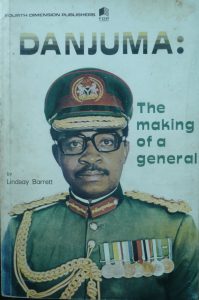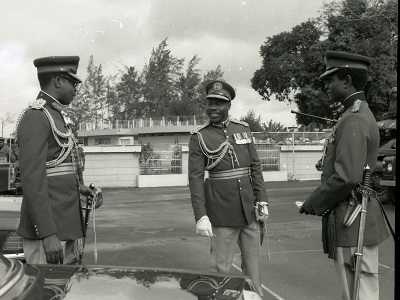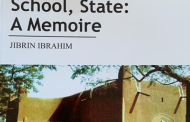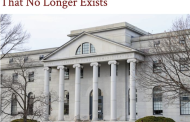Intervention thanks all those who have raised questions on the story titled Theophilus Danjuma Does It Again, But….. The TY story in question is one of the mysteries of the audience of Intervention. The story that took a look of research to put together takes weeks for the readership to climb. Stories put together very rapidly just to make a mention of it or stress one key point could climb so quickly to four digits and above such as the story in question.

Needed: a grid that ties the diverse spheres together

The exception as ‘Gowon’ serves a metaphorical purpose too
It was intended to stress the consistency of General Danjuma’s donation career in the last one decade and to problematise it in terms of the meaning of the totality of his life. Not only did the story has been too well read, it has attracted questions or ‘query’ if you like. It is the sort of ‘query’ Intervention must answer.
All the comments and questions I have seen (except those sent to the open channel which must already be up on the website) is what could the grid mean and how is that connected to the idea of TY establishing a university. The point is this.
General Danjuma has been involved in many theatres – soldiering, valour, religion, regional godfather, force of character as a no-nonsense man, COAS, Minister of Defence, kingmaking by someone who could have been king if he had vaulting ambition, generous donor, democrat and lately critic.
None of these spaces of unfolding tells a complete story about the man. A complete story about him is only possible when the diverse activities are brought under one conceptual roof.
Calling him a statesman doesn’t solve the problem of a conceptual roof because the word statesman is a nebulous, all comer concept. It lacks a TY specificity.
So, a team of crazy set of intellectuals, mainly linguists, philosophers of language, students of conventional semantics, semioticians, discursive psychologists, journalists and sundry social theorists would have to sit and battle it out.
General Gowon has been the lucky one out of the tribe of former leaders. His name Gowon has been creatively analysed as ‘Go On With One Nigeria’. There is hardly anytime that will fade although it is not without its lack but it has an appeal that is seductive grip or can be made to mean anything since words have no foundational meaning. The others such as IBB, OBJ and Black Scorpion have overpowering lack when compared to, say, Zikism or Leninism or Awoism or calling the late Abubakar Rimi “Limami Changi”

An institution can go a long way but not in itself
The second side of the question is what does finding the grid has to do with a university.
Those who asked this question are correct to do so because the two things are not necessarily connected. The assumption of connection is part of the problem of mass communication. A lot of it is based on the assumption that the average reader would proceed to establish the connection between elements, seen and unseen. In this case, the connection is not that obvious.
Finding the grid requires no more than an assemblage of hard headed meta-theorists to do the job as already mentioned above. The problem, however, is that people will not consume the grid uncritically. Even if TY has no enemies who will rise in revolt against whichever grid is found, the society is so heterogeneous that, somehow, the grid will confront contestation at some point. Except religion, no realm of the social has escaped the instability of meaning. What is hegemonic today can easily be ruptured tomorrow, so completely. So, finding the grid is only a step, inoculating it against rupturing is even more difficult.
This is where the idea of a university comes into the analysis. Since a huge chunk of his donations have gone to the universities for whatever reasons, why doesn’t he consider building a university that bears testimony to the TY touch of exceptionalism?
If he does that, he would be killing two giant birds with one stone. The first bird he would kill will be a university that, in conception and practices, offers a critique of the shabby way we run universities in Nigeria lately. This is doable since money is, so to say, not the problem (to the extent that such a university should, somehow, be able to fund itself subsequently, not necessarily through tuition fees as seems to be the easy option in Nigeria). Of course, the assumption here is that General Danjuma and his handlers will put a system of recruitment of university leadership in place which no scatter brain can disrupt in future.
As a university is a concept manufacturing center, one by-product of this university is a repository of concepts and conceptual frameworks which intellectuals of the TY personality in the university could tap from to continue to stabilise the grid from counter-hegemonic assaults. That is the connection between the grid and a university with a TY touch.

Samuel Huntington was barely mourned, relatively speaking

Kissinger goes to his ancestors at 100 carrying the image of a war criminal
The problem is not exclusive to General Danjuma but to every other high impact personality in Nigerian politics. The evidence that most of the people in that bracket have not found a way round the problem can be found from the number of persons who declare how determined they are to make history when assuming political office. Clearly, they think that history making is something an individual accomplishes at will and once achieved, remains history making permanently. No. There is no historical event or personality that cannot be ruptured at any point in time. One reason for this is that every epoch making situation has something it excludes or does not accommodate. That which is excluded at the time of the event will be mobilised by those disfavoured by that epoch making event to destabilise what has previously been called epoch making. So, people who worry about their place in history must also invest in the centres or institutions (research centres, universities, think tanks, Foundation, NGOs) which fabricate the terms of hegemonic consensus. Or they will turn in unbearable pain their graves.
The world is witnessing this right now in how the global media simply dispensed with speaking no evil of the dead to call Henry Kissinger a war criminal. What was a glorious career in many respects such as détente has been overwritten by the controllers of the discursive spaces today to privilege the consequences of policies linked to Kissinger in parts of Asia, Latin America and Africa, putting him under that conceptual grid. Unless Kissinger’s followers are there and are willing and able to fight back, the overarching image of a war criminal will remain for as long as it is ruptured. If enthusiasts of Samuel Huntington have not been able to reverse his less than adequately mourned exit in spite of the waves his ‘Clash of Civilisations?’ made, what is the guarantee that Kissingerians can achieve a reversal of his dominant image of a war criminal?
General Danjuma’s luck might lie in the possibility of the insertion of one set or another of the beneficiaries of his exertions in philanthropy in the ideas system as to be able to harp on a narrative of him beyond this moment. That has been the case of Sir Ahmadu Bello by the cohort of the Northern intelligentsia that the British compacted but which has now disintegrated. As long as that intelligentsia existed, it made referentiality of the late Premier a key dimension of fantasmatic politics, consciously and otherwise.
It is a major paradox that such a sophisticated cohort could not insulate a key centre of knowledge production as the Ahmadu Bello University, Zaria, allowing it to degenerate to a centre of religious skirmishes and intra-regional elite quarrels. Today, instead of the fear of radical student activists and lecturers seen as fiery, it is the fear of radical bandits, terrorists and kidnappers.
Sirs, I hope I can be let off the hook at this point but not before thanking those who not only saw the disconnections in the story but also drew attention to it.




























